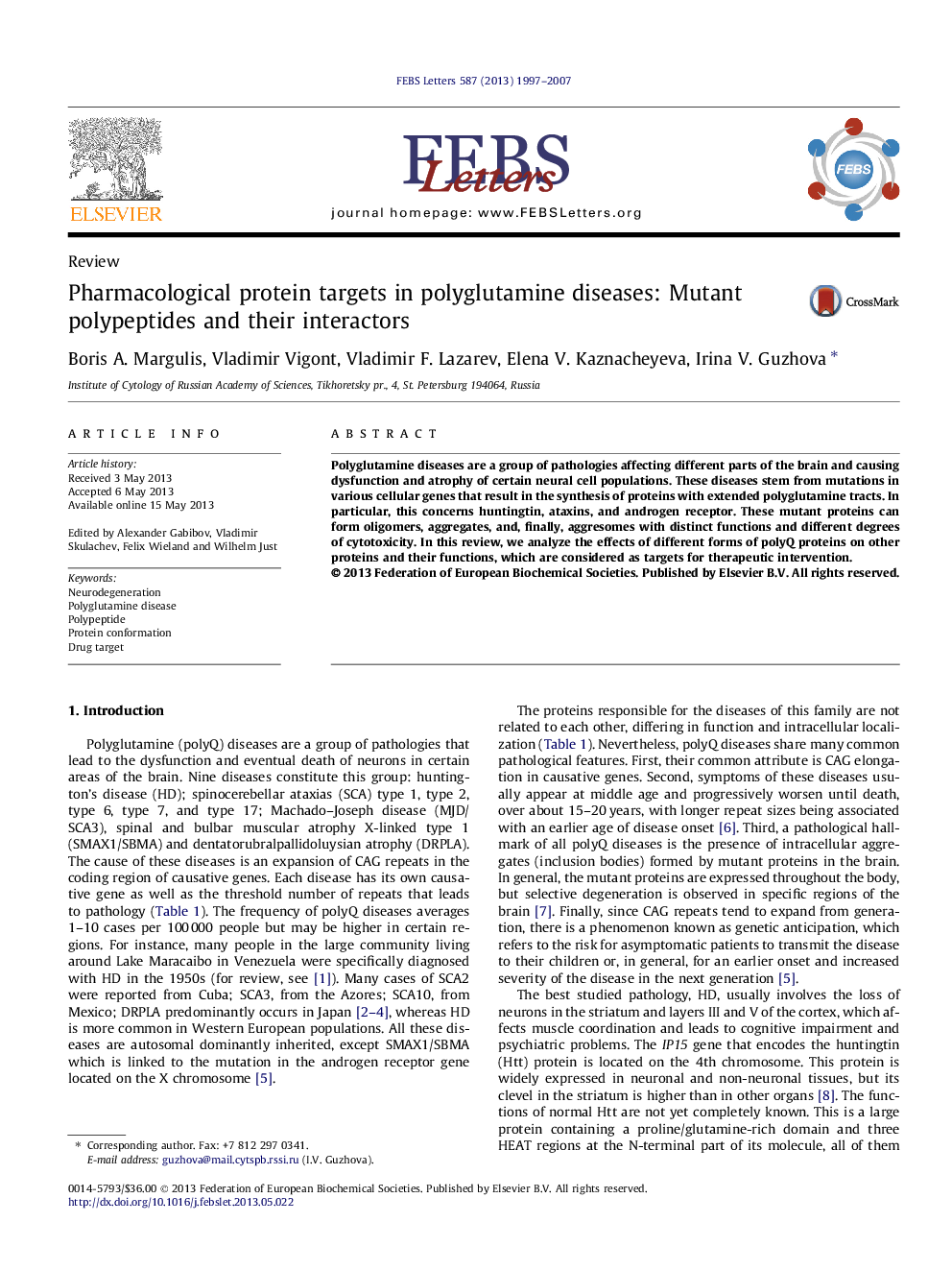| Article ID | Journal | Published Year | Pages | File Type |
|---|---|---|---|---|
| 10871348 | FEBS Letters | 2007 | 11 Pages |
Abstract
Polyglutamine diseases are a group of pathologies affecting different parts of the brain and causing dysfunction and atrophy of certain neural cell populations. These diseases stem from mutations in various cellular genes that result in the synthesis of proteins with extended polyglutamine tracts. In particular, this concerns huntingtin, ataxins, and androgen receptor. These mutant proteins can form oligomers, aggregates, and, finally, aggresomes with distinct functions and different degrees of cytotoxicity. In this review, we analyze the effects of different forms of polyQ proteins on other proteins and their functions, which are considered as targets for therapeutic intervention.
Related Topics
Life Sciences
Agricultural and Biological Sciences
Plant Science
Authors
Boris A. Margulis, Vladimir Vigont, Vladimir F. Lazarev, Elena V. Kaznacheyeva, Irina V. Guzhova,
